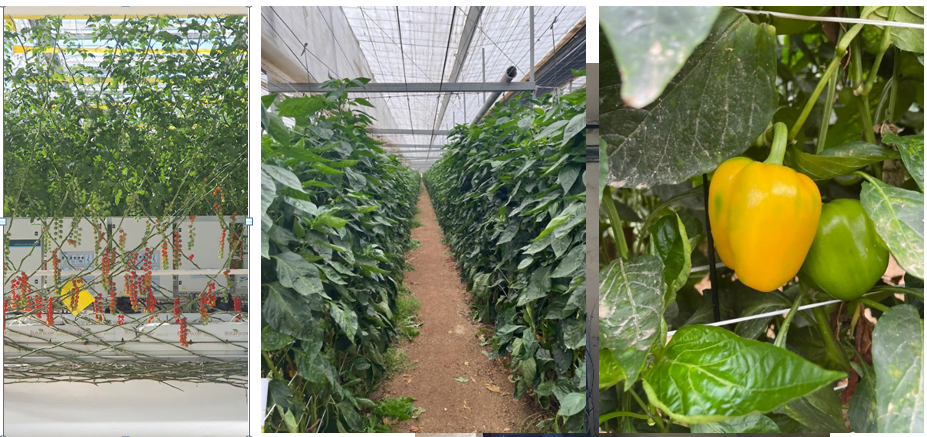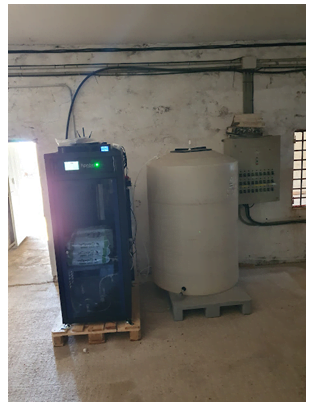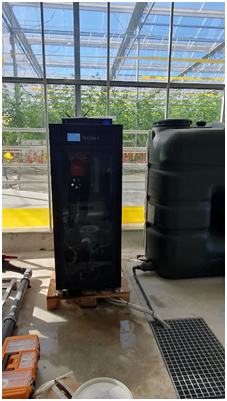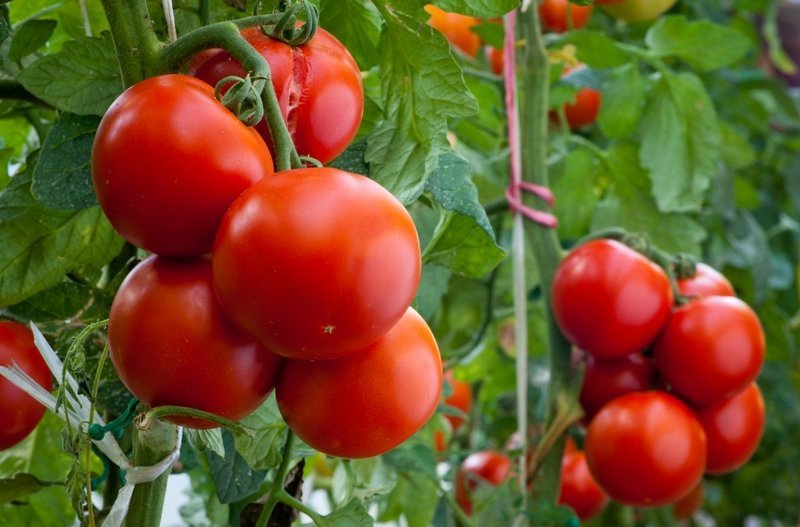![]() Understanding the impact of Tomato Brown Rugose Brown Virus (ToBRFV) in Solanaceae – an introduction
Understanding the impact of Tomato Brown Rugose Brown Virus (ToBRFV) in Solanaceae – an introduction
The rugose brown virus is a disease that affects plants in the Solanaceae family (such as tomatoes, peppers, and eggplants) also known as the Tomato brown rugose fruit virus (ToBRFV), an RNA virus that spreads mainly through seeds, direct contact with infected plants, and insect vectors.
 Symptoms of rugose brown virus infection include brown spots on leaves, fruit growth distortion, deformities, and roughness on the surface. This can lead to a decrease in crop quality and reduce yield.
Symptoms of rugose brown virus infection include brown spots on leaves, fruit growth distortion, deformities, and roughness on the surface. This can lead to a decrease in crop quality and reduce yield.

![]() Tomato leaves, plants and fruits infected by ToBRFV
Tomato leaves, plants and fruits infected by ToBRFV
![]() The rugose virus primarily affects this family and can cause severe losses in plantations. It spreads rapidly through infected seeds, insects, and contaminated tools. Once detected in a plantation, it is difficult to control and may require the destruction of entire crops to prevent its spread.
The rugose virus primarily affects this family and can cause severe losses in plantations. It spreads rapidly through infected seeds, insects, and contaminated tools. Once detected in a plantation, it is difficult to control and may require the destruction of entire crops to prevent its spread.
The main effects of the rugose virus in solanaceous plants are:
- Spots and deformations on the leaves: The leaves of infected plants present yellow or tan spots, which may spread and cause deformations in the leaf blade.
- Growth delay: Plants infected by the rugose virus in solanaceous tend to show slower and less vigorous growth than healthy plants.
- General decline of the plant: As the infection progresses, a general weakening of the plant can be observed, with a reduction in fruit size and lower production.
- Necrosis and wilting: The virus can cause necrosis and wilting in different parts of the plant, such as flowers, fruits, or stems.
- Transmission through insects: The rugose virus in solanaceous is mainly transmitted by vector insects, such as thrips and aphids. These insects feed on infected plants and subsequently transmit the virus to healthy plants.
Enhancing Plant Health with Peroxide UltraPure™: a proven Green Oxidant for Disease Control in Agriculture
Peroxide UltraPure™ is a product used in agriculture to protect plants. Peroxide UltraPure™, an ultra-pure form of hydrogen peroxide, is a Green Oxidant exclusively manufactured by the HPNow GOgen system at the greenhouse itself, and injected into the irrigation lines. Specifically, for the control of the effects of the rugose virus, Peroxide UltraPure™ has been proven to be very effective.
Peroxide UltraPure™ is injected into the irrigation system of plantations as a strategy to improve plant health. The benefits of this practice are:
- Protects the crop: Peroxide UltraPure™ controls the spread of the viral load. By minimizing the presence of the virus and their spores in the water, the spread of the disease in plants is reduced.
- Controls biofilms: Peroxide UltraPure™ effectively oxidizes biofilms, which are layers of bacteria and pathogens that adhere to surfaces in the irrigation system and on plant roots. By disrupting these biofilms, it prevents harmful pathogens from establishing themselves and causing infections. This action not only keeps the irrigation system cleaner but also reduces the potential for disease transmission among plants.
- Improves plant resistance: Peroxide UltraPure™ increases water dissolved oxygen levels, which stimulates the defense system of plants, making them more resistant to diseases. By strengthening the natural defenses of plants, the likelihood of them being infected by the rugose virus and other pathogens is reduced.

Certified laboratory water analysis of a sample obtained from a tomato Greenhouse showing no virus detected. The sample is taken from the drains, where risk of virus contamination is highest. A GOgen system is installed in this greenhouse, producing Peroxide UltraPure™ that is injected into the irrigation network.



Virus-free crop in a 5 ha tomato and a 6 ha pepper greenhouse that have an HPNow GOgen system installed, and corresponding pictures of HPNow Gogen systems.
HPNow’s GOgen system enables the on-site generation of Peroxide UltraPure™, producing hydrogen peroxide of very high purity directly at the facility. Adhering to the manufacturer’s guidelines significantly benefits agricultural practices. This system is effective not only to protect the crop, but also to increase the levels of dissolved oxygen and manage biofilm within the irrigation infrastructure. Consequently, this leads to improvements in both the quality and quantity of production.
In summary, the application of hydrogen peroxide, generated directly on site, through the irrigation network presents a viable method for managing the rugose virus in crops. This approach contributes to sustaining a healthy crop environment and bolstering plant resilience.

The use of the site materials is free if there is a direct and open for search engines hyperlink to a specific publication of the East-Fruit.com website.




